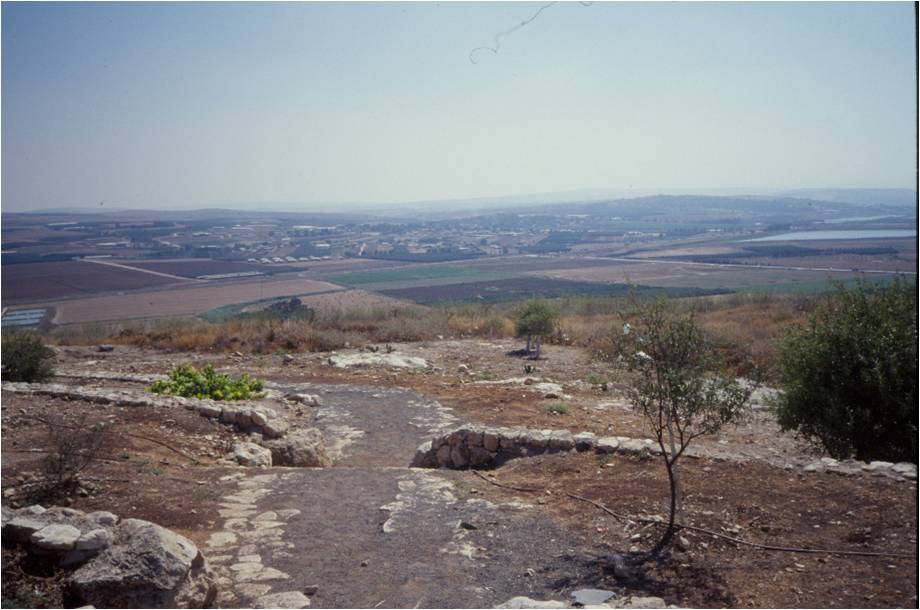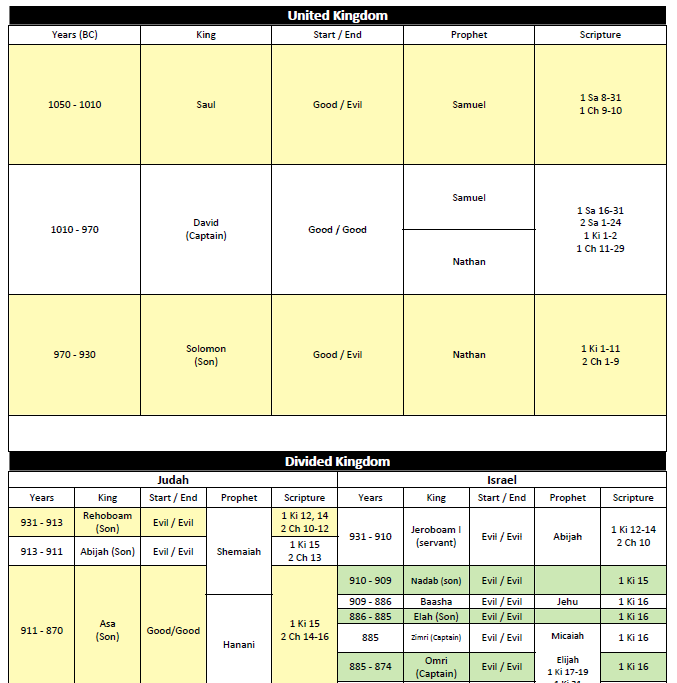 Old Testament biblical history can be some of the most difficult material for readers of the Bible. The conventions of contemporary history writing are quite different from those of ancient Israelite writers. How can we better understand what we’re reading in the Bible’s history books?
Old Testament biblical history can be some of the most difficult material for readers of the Bible. The conventions of contemporary history writing are quite different from those of ancient Israelite writers. How can we better understand what we’re reading in the Bible’s history books?
Bible Gateway interviewed the Rev. Dr. Patricia Dutcher-Walls about her book, Reading the Historical Books: A Student’s Guide to Engaging the Biblical Text (Baker Academic, 2014).

Which ones are the Bible’s historical books and why are they so classified?
The Rev. Dr. Dutcher-Walls: We call certain biblical books “historical” because they contain an account of the past, recording community and national events, times, places, and people in the story of ancient Israel. These books are Joshua, Judges, 1 and 2 Samuel, 1 and 2 Kings, 1 and 2 Chronicles, Ezra, and Nehemiah. Other biblical books have historical qualities to them, of course. For example, Genesis 14 preserves a story of battles and kings much like those in 1 Kings, and a chapter like Jeremiah 39 relates the same events as in 2 Kings 24-25.

The archaeological remains of Jezreel, a royal city in northern Israel, circa 800 BCE (photograph by Pat Dutcher-Walls)
When were they written and what time periods does their content cover (in other words, how far removed were the authors from the events they wrote about)?
The Rev. Dr. Dutcher-Walls: In the historical books, we read a story that begins when the people of God enter the land of Canaan (Joshua 1:2) and that goes on to describe their early life in the land (for example, Joshua 17:14-18), the development of kingship and the institutions of the monarchy (2 Samuel 5:1-5), the actions of the kings, people, and prophets of Israel in the north (2 Kings 8:1-6) and Judah in the south (2 Kings 20:1-7), the eventual loss of the land to the Babylonian Empire (2 Kings 25:1-12), and the restoration of the Jewish community in Jerusalem under the Persian Empire (Ezra 1:1-11). This time period spans from about 1200 BCE to 450 BCE.
“Authorship” of these books can be described as a long term process in which the community, inspired by God’s presence among them, remembered and recorded its witness to God’s revelation in their lives and its relationship with God through the events of history. The community was the first “author” in oral traditions that probably date back to earliest days (Judges 5 is an early poem), then in recollection of tales that illustrate God’s power in human lives (1 Kings 17), and in records that chronicled official events (1 Kings 15:23-24). Around 700-600 BCE, more structured authorship emerged when royal scribes began recording documents to remember and interpret a national history that highlighted God’s actions through and with the leaders of the community—kings, prophets, priests, and elders. These documents were preserved and kept alive by scribes of the ongoing community and became two historical collections—the “Deuteronomistic History” (Joshua-2 Kings), and the post-exilic history (Chronicles, Ezra, Nehemiah).
You begin your book with the story of discovering in the attic an old family history volume that’s written in an unfamiliar style and difficult to understand. How does this illustration relate to the reading of the Old Testament?
The Rev. Dr. Dutcher-Walls: This image captures several important elements that parallel how we can understand the Old Testament. First, it’s a document that is old and somewhat “foreign” to us today. For the Old Testament, this means we read this collection of books well when we learn more about what life was like in the “old days” (for example, Judges 6). Secondly, it’s a document that has been carefully preserved, handed on, and cherished as an extended family tradition. For the Old Testament, this reflects the sacredness of this collection of books to generations of God’s people over 3,000 years (see Nehemiah 8:5-8). Thirdly, the significance of its historical witness rests not only in the events it records but more importantly in the way it emphasizes meaning in what happened. The Old Testament communicates why events were important, what God reveals through them, and truths by which we should shape our lives (for example, 1 Samuel 1:1 – 2:11). Finally, it’s a document that tells us our roots, identity, and purpose. For the Old Testament, this means it speaks to who we are and whose we are (see Joshua 24:1-28).
What do you mean by saying readers should “take the text of Scripture seriously”?
The Rev. Dr. Dutcher-Walls: Taking Scripture seriously means enhancing our abilities to listen to the text with respect, openness, and sensitivity. This requires using approaches such as:
- being aware of and trying to set aside temporarily our initial preconceptions and assumptions,
- understanding as much as possible about the ancient contexts and contents of Scripture,
- recognizing that our modern contexts shape how we read Scripture, and
- assuming that these ancient inspired documents were written with care, so we need to read carefully with deep appreciation for the artistry of the text.
Why is it important for 21st century Western urban Christians to properly read and understand Bible history books written in and about an agrarian Middle Eastern culture over 2,000 years ago?
The Rev. Dr. Dutcher-Walls: One reason why it’s important for 21st century Christians to read the Old Testament historical books well is because reading these books is like learning a foreign language. We have to translate how things are done to understand what is being communicated. But more importantly, if we believe that Scripture is the living word of God, then we need to let the text speak in its own voice. Through God’s Spirit, we believe the text can and will continue to reveal God’s ways with humanity and all creation. Distinct and rich expressions of God’s ways are integral to the historical books, as they are throughout the varied expressions in all of Scripture. Learning to appreciate how and what a text communicates, and listening well to the deep and varied inspirations and insights of Scripture, nurtures us in our life of faith.
Bio: Patricia Dutcher-Walls (ThD, Graduate Theological Union) is professor of Hebrew Scripture at Vancouver School of Theology, where she also gives administrative oversight to the school’s doctoral programs and serves as dean of studies and director of the library. She is the author of several books and a Web-based Bible study curriculum. Ordained by the United Presbyterian Church (USA), she now serves as a minister in the Presbyterian Church in Canada.
 We’re happy to announce that the Confraternity of Christian Doctrine has granted permission to Bible Gateway to include the New American Bible Revised Edition (NABRE) in our extensive online free library of more than 180 Bible translations.
We’re happy to announce that the Confraternity of Christian Doctrine has granted permission to Bible Gateway to include the New American Bible Revised Edition (NABRE) in our extensive online free library of more than 180 Bible translations.








 Yesterday, Mark Noll delivered a public address in conjunction with the
Yesterday, Mark Noll delivered a public address in conjunction with the 